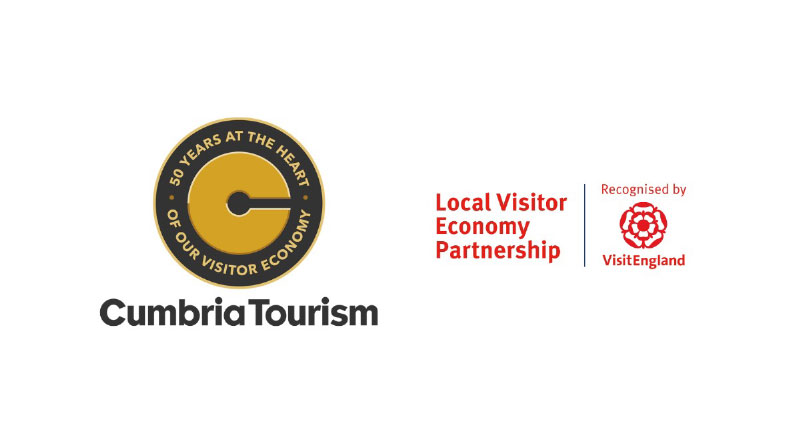Latest Research Shows Further Slump In Cumbria’s Post-Pandemic Tourism Recovery

Five years on from the Covid pandemic, latest figures reveal a continuing challenging picture for Cumbria’s tourism sector as visitor numbers and profitability shrink further.
The new statistics for 2024 come from the Scarborough Tourism Economic Activity Monitor, commonly known as ‘STEAM’. The independent annual assessment has taken place in Cumbria for more than 25 years and is produced on behalf of a partnership led by Cumbria Tourism and supported by Cumberland Council, Westmorland & Furness Council and the Lake District National Park Authority.
The latest data shows that Cumbria’s tourism industry contributed £4.6billion to the local economy in 2024, supporting 74,823 jobs – that’s 28% of county’s workforce. However, these figures are down on the previous 12 months, with further reductions in other key metrics including:
- A fall in both visitor numbers (-3.3%) and visitor days (-5%)
- A fall in revenue of -5.7% (once adjusted for inflation)
- Staying visitors remained stable, but staying visitor nights fell by -6.3% (due to shorter trips)
- Day visitors fell by -4%, equivalent to a loss of 1.42million visits.
When compared against 2019, visitor numbers remain -14% down overall and day visitors have fallen by -18%.
More positively, staying visitors have increased by +10% over the same period and now generate more than half (52%) the revenue of the total number of visitors. This reflects a key objective of Cumbria’s ‘Destination Management Plan’ (DMP) to increase the contribution of overnight visitors.
There was also a small increase in the revenue generated outside the traditional summer holiday season; 38.9% of revenue was generated between January and March, then October to December 2024 (up from 36.1% in 2023). Again, supporting all-year round tourism and job security is a priority within the five-year DMP action plan for Cumbria.
The data also provides fresh insights into visitor’s spending habits while they are here. Food and drink is a key beneficiary, with the value of visitor spend on food and drink now worth £1.1billion to the Cumbrian economy. The greatest beneficiary though is the tourism industry’s indirect supply chain, which is valued £1.2billion and includes everything from transport and retail to utilities/infrastructure and professional services like IT, accountants and legal advisers – all key services which benefit local residents and communities too.
Commenting on the latest STEAM figures, President of Cumbria Tourism Jim Walker says:
“Cumbria’s £4.6billion tourism and hospitality industry is made up of hundreds of small businesses who make a huge contribution to other sectors, including transport and the wider supply chain. They also help to create the assets that make Cumbria such a special place to live and work for our local communities. However, this latest data clearly demonstrates that – after the economic shock of the pandemic and subsequent government policy changes around immigration and taxation – long-term recovery is proving extremely challenging for these vital visitor economy businesses as they face reduced visitor numbers coupled with increasing costs. Ultimately, this means less profitability and ability to employ and re-invest.
“Businesses feel as though they are increasingly being hit from all sides. For instance, changes in national policy have resulted in higher National Insurance contributions, increases to the National Minimum wage, more restrictive inheritance tax and the highest VAT rate in Europe. A lack of affordable housing and immigration policy changes have both impacted negatively on recruitment and retention, while factors such as increased VISA costs and the removal of tax free shopping are making us more internationally uncompetitive too.
“Cumbria has a shared Destination Management Plan, which public and private partners are collectively ambitious to deliver, enabling sustainable growth for the benefit of the whole of the whole of the county and its communities. At the moment, a combination of the cost of living crisis and a series of unlinked and uncoordinated national policy changes are seriously damaging business profitability, the economy, jobs and therefore communities. We are determined to work in partnership with others to help to stabilise and improve this situation.”
He adds: “The Government is currently developing a Tourism Strategy, so we will be sharing these findings and calling on them to fully recognise not just the crucial role of tourism to the UK economy and jobs, but also its integral part in the social and cultural fabric of our places and communities – especially in more rural destinations like Cumbria.”
